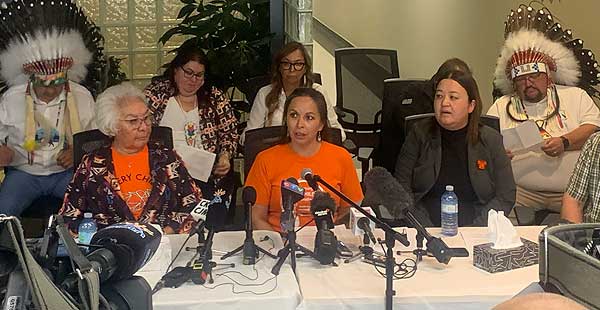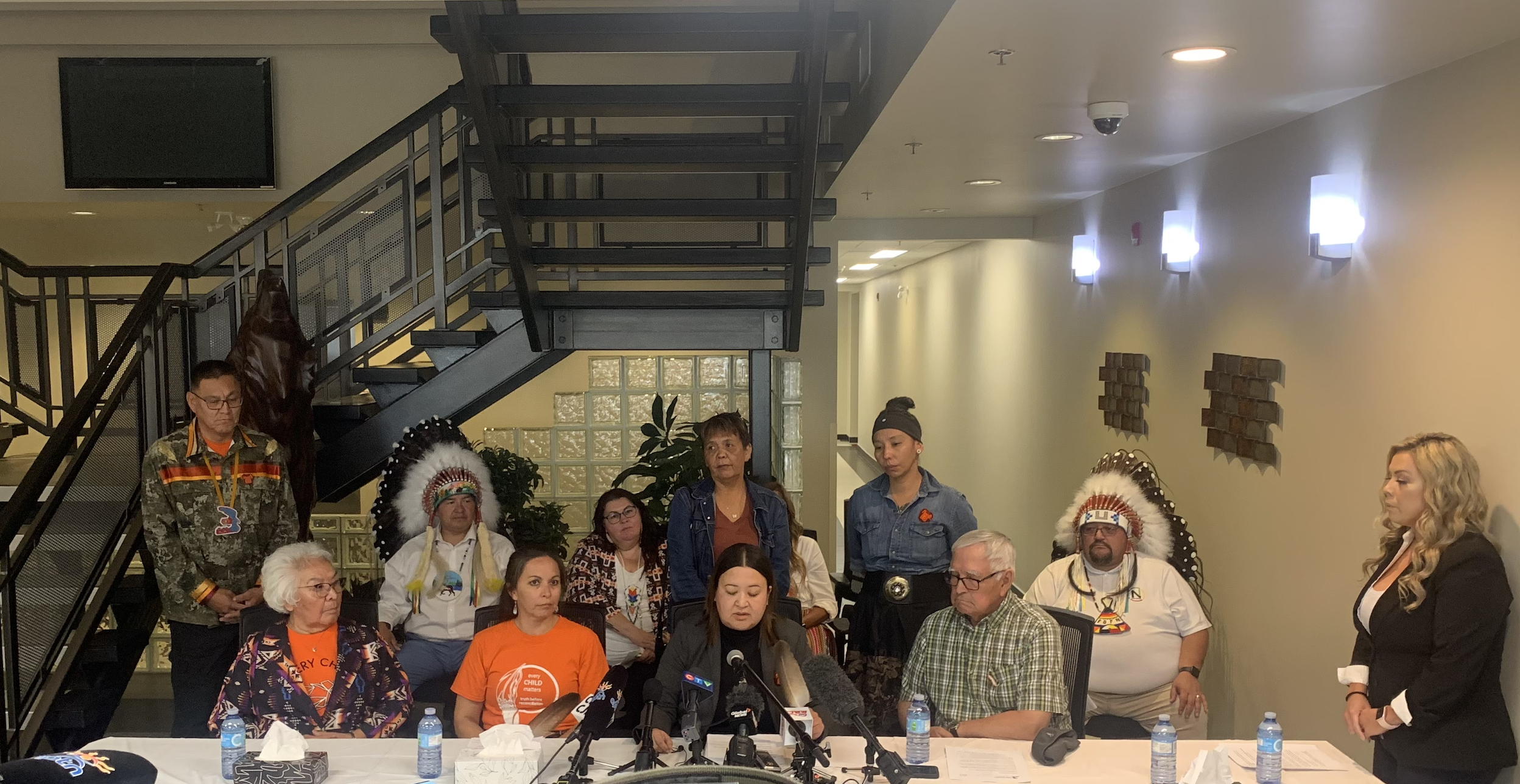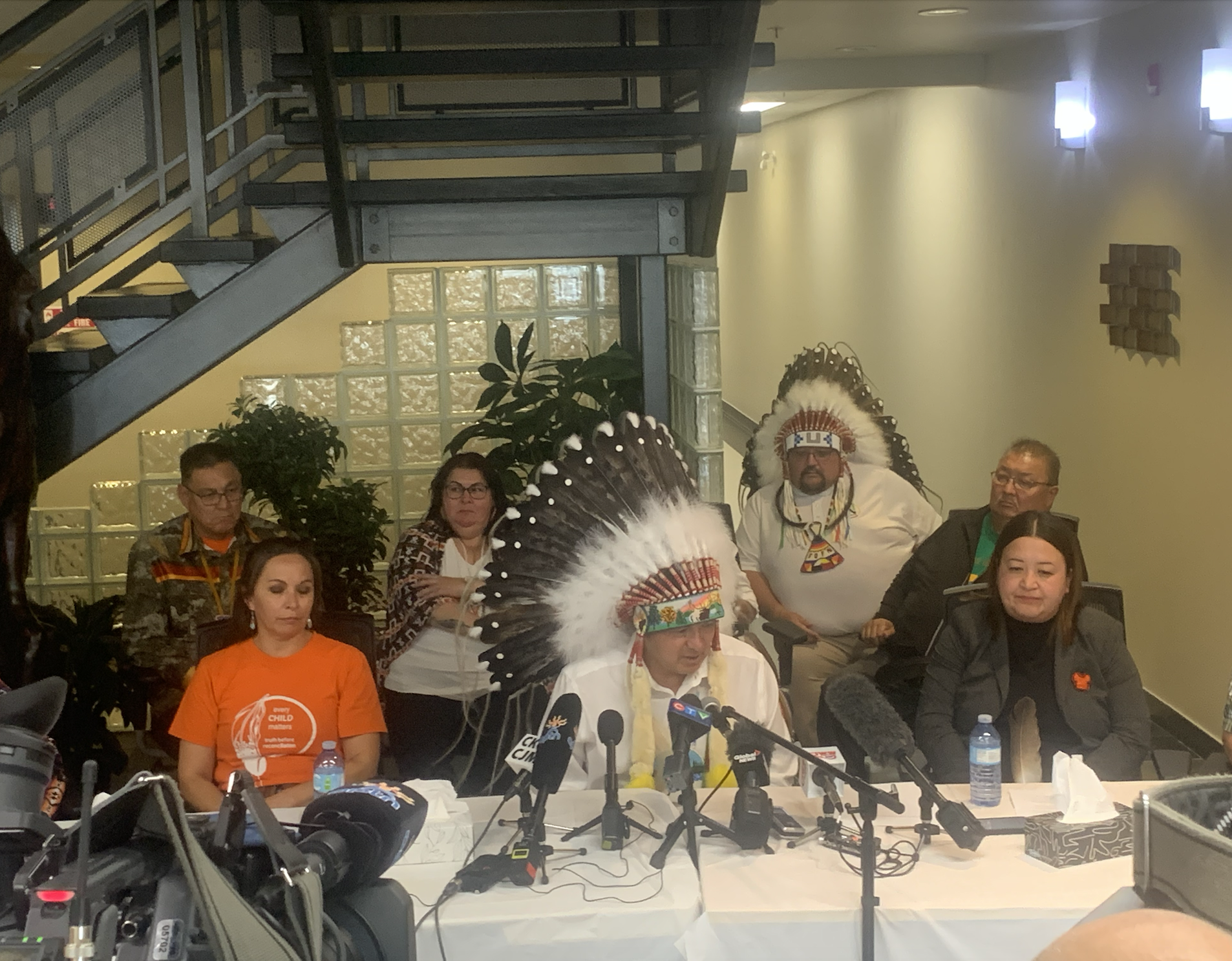The Beauval Indian Residential School is the site of at least 93 unmarked graves
- Local Journalism Initiative - NC Raine | September 25, 2023
More unmarked graves have been uncovered at the former Beauval Indian Residential School than previously announced.
“What we found is heartbreaking and devastating,” said Jenny Wolverine, Chief of English River First Nation. “This is not a final number. It breaks my heart that there are likely more. And that there is even one [more discovery]. The experience of residential school is horrific.”
Based on the measurements of the soil disturbances using ground penetrating radar (GPR), it is believed that all the unmarked graves are those of children – 79 children and 14 infants. It was initially thought there were 83 unmarked graves, but the latest number is 93.
The two-year search included help from GPR experts, archaeologists, Elders, and members of the community.
“The discovery of the graves was just the first step in what will be a long and difficult journey,” said Wolverine. “We have heard ‘I am sorry’. Now we need to see action. That means continuing to bring home the children we lost at the hands of residential school.”
She said the discoveries impact 16 communities in northwest Saskatchewan, including Métis communities.
Dawn McIntyre, GPR coordinator, contextualized the impact and reach of these findings.
“We are all living within an imposed cycle of trauma handed down by our parents, grandparents, and great-grandparents,” she said. “This is because in our Indigenous culture we experience our lives collectively.”
The residential school at Beauval became a government-funded boarding school in 1897 and operated until 1995. McIntyre said the search was conducted in a known cemetery used by the school until the early 1980s.
In attendance at the announcement in a show of solidarity were Elders and members of the Meadow Lake Tribal Council, Federation of Sovereign Indigenous Nations, Métis Nation-Saskatchewan, and the Office of the Treaty Commissioner.
“Thou shall not kill – it’s a commandment in any law, no matter your race, colour or religion,” said FSIN Bobby Cameron.
“Those people [responsible for these lives] should not be walking freely,” he said.
Cameron called on the federal government to release the records and archives so the affected communities and families can begin identifying their lost family members.
“Justin Trudeau – step up,” said Cameron. “Be a man. Take direction of the English River First Nation and so many other residential school sites across this country. Do the right thing. Do the honourable thing.”
Leaders from the aforementioned First Nations and Métis communities stood together to make a unified call to action to address the long-standing injustices suffered by residential school survivors:
Putting words into action – have the political will to implement the Calls to Action;
• Install culturally appropriate memorials in our communities;
• Erect a meaningful and respectful monument to acknowledge all residential schools;
• Healing centres to address the continued harms of residential school;
• Provide complete records that list ALL students who attended residential school;
• And embark on a national educational journey that properly reflects the effects
residential schools have had on First Nations and Métis families.
“Although we don’t know we don’t know who these children are yet today, it is our destiny,” said Meadow Lake Tribal Council vice-Chief Richard Durocher.
“At this time, mental wellness is priority. Mental wellness of our survivors and our Elders, and all the people affected by the residential school era,” he said.



